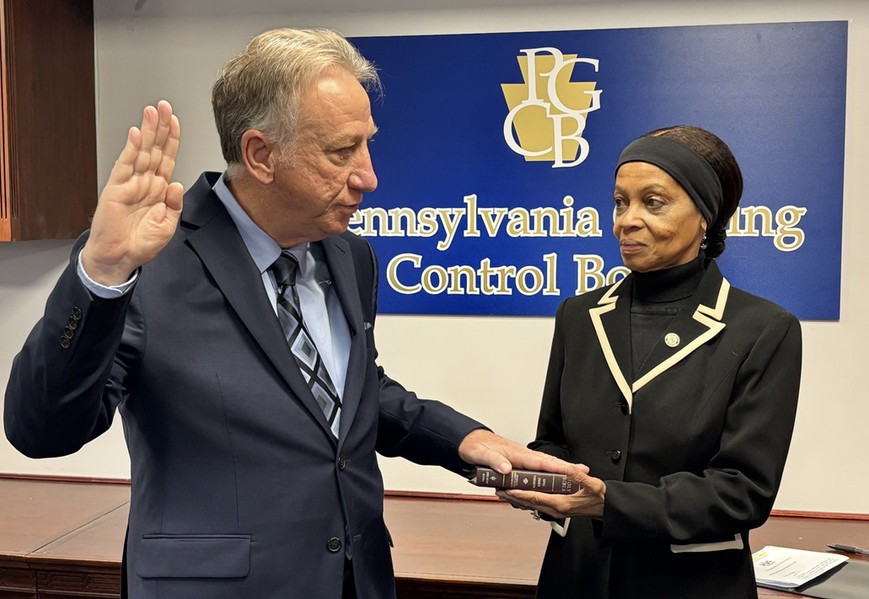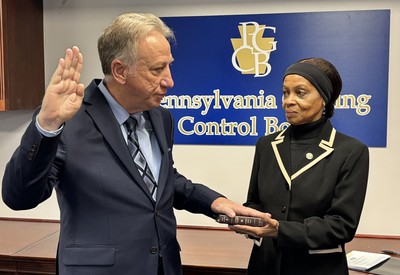

Former Pennsylvania state Rep. George Dunbar, a leading advocate for Pennsylvania online poker and shared liquidity, has been appointed to the Pennsylvania Gaming Control Board (PGCB).
His appointment comes as Pennsylvania moves closer to joining the interstate online poker compact. Dunbar played a pivotal role in advocating for the state’s inclusion and backed our #GrowPApoker campaign.
Dunbar, an online poker player himself and western Pennsylvania native, has been appointed as the newest commissioner of the state gaming regulator. His appointment, announced Tuesday, April 2, will see him serve a two-year term as part of the regulatory body responsible for overseeing all forms of gaming in the state.
Dunbar served seven terms as a State Representative for the 56th Legislative District and was a key figure in the legislative arena. In his final two terms, he was elected by his peers as chairman of the House Republican Caucus.
Dunbar’s Push for Shared Liquidity
While Dunbar has had a diverse political career, his involvement with online poker, particularly his efforts to push the Keystone State toward joining shared liquidity, makes him a prominent figure in the state’s gaming landscape.
He is best known in the PA online poker community for introducing HB 2078, a bill aimed at advocating for the state’s participation in the Multi-State Internet Gaming Agreement (MSIGA).
This bill was introduced during his final term in the state House of Representatives before his retirement. It was a key part of the effort to grow online poker in the state, as it would allow for shared player pools across state lines, providing a larger player base and bigger prize pools.
Pennsylvania remains the only major state with regulated online poker that has yet to join the MSIGA. Currently, nearly all other regulated poker states, including Nevada, Delaware, New Jersey, Michigan, and West Virginia, are part of the US poker compact. Smaller states like Connecticut and Rhode Island have also yet to join.
While the bill itself did not make it through the legislative process, it played a key role in raising awareness about the issue, keeping the conversation alive in Harrisburg, and giving the #GrowPAPoker campaign a crucial boost. The fact that Governor Josh Shapiro later directed the PGCB to explore joining the MSIGA is a testament to the campaign’s lasting impact, even though the bill did not pass immediately.
Dunbar was consistently in touch with us, as well as our premium sister site Poker Industry PRO, and never hesitated to speak openly. In an interview with us last year, he credited the growing momentum of the #GrowPAPoker campaign to the persistent efforts of the PA poker community, highlighting the barrage of tweets, emails, and public outreach that successfully caught the attention of key decision-makers, including the chairmen of the House Gaming Oversight Committee and other influential legislative leaders.
“The awareness level is up there,” Dunbar told us last year. “That doesn’t necessarily mean things get done right away just because there’s awareness. As a group, we have to continue to push Leader Bradford on the Democratic side of the aisle to get the bill out of committee.”
In fact, Dunbar is an avid online poker player himself. He’s been playing for years and recalls the days before Black Friday when finding an online tournament with a $20 buy-in and a $20,000 guarantee was commonplace. He even won about “five or six grand” from a $24 buy-in on PartyPoker back in the day.
“I’ll still play, but it will be a lot nicer [post-MSIGA],” Dunbar told Poker Industry PRO. “I remember back then, I used to play on partypoker. I remember winning a $24 buy-in and getting five or six grand. That’s the whole pool right now.”
He also participated in a special PokerStars freeroll last year to support the #GrowPAPoker campaign and even managed to cash in the event.
PA’s Shared Liquidity Expected Timeline
While it’s not immediately clear what specific role he will play, especially with Pennsylvania on the verge of joining the MSIGA, the fact that a strong advocate for online poker and shared liquidity has joined the PGCB is promising. His appointment could signal potential efforts to expand the compact, encouraging other jurisdictions—such as Connecticut, which recently introduced a bill to join the compact—to come on board, as well as future states that legalize online poker.
Pennsylvania is likely to become the sixth member of the MSIGA this spring, potentially as soon as this month. Once the state officially joins the compact, operators will be able to connect Pennsylvania’s player pool with their existing shared liquidity networks.
While the exact timeline for this process is unclear—having taken anywhere from several months to over a year in other states—Pennsylvania’s large market could encourage operators to accelerate the process.
It is possible that PA will be included in shared liquidity as early as this summer, if not sooner. Major operators like PokerStars, WSOP, and BetMGM are likely to push for a swift merger, and it could even prompt BetRivers to expand its online poker presence in additional states such as New Jersey, Michigan, Delaware and even West Virginia, debuting their own shared liquidity network involving Pennsylvania.

